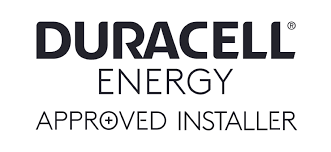How Effective Are Solar Panels During the Winter Season?
- Lucy
- Nov 5, 2024
- 3 min read
Solar panels are becoming increasingly popular across the Southwest, driven by attractive incentives and low installation costs that offer impressive returns on investment. A common misconception is that solar panels are only effective during sunny weather. In this blog, we will delve into this notion to determine whether solar panels are indeed a wise investment during the winter months. Join us as we explore the realities of solar energy and its performance in cooler, cloudier conditions.
To answer your question shortly, solar panels can work in the winter months! While they are most effective in sunny conditions, they can still produce electricity even on cloudy or snowy days. Here are a few key points to consider:

1. Sunlight Availability: Solar panels generate electricity based on sunlight, not temperature. Even in the winter, sunlight is available, and panels can still capture that light to produce energy.
2. Efficiency in Cold Weather: Solar panels often operate more efficiently in colder temperatures. Higher temperatures can reduce their efficiency, so the chill of winter doesn't hinder their performance.
3. Snow: If snow accumulates on the panels, it can temporarily block sunlight and reduce energy production. However, solar panels are typically designed at an angle, allowing snow to slide off. Additionally, the sunlight can help melt the snow quickly.
4. Shorter Days: One of the main challenges in winter is shorter daylight hours, which means less time for solar panels to generate electricity compared to summer months. However, proper system sizing can help mitigate this issue.
Overall, while winter conditions can impact the performance of solar panels, they are still a viable energy solution year-round.
Are Solar Panels a Good Investment for Winter?
Solar panels can still be a good investment during the winter months, though their performance may vary compared to sunny summer days. Here are some reasons why they can be a worthwhile investment even in winter:

1. Reduced Electricity Bills: Solar panels can significantly lower your energy bills, even in the winter. During months when you're using more heating or lighting due to shorter days, the energy savings can still make a difference.
2. Long-Term Savings: The investment in solar panels generally pays off over time. Many systems come with warranties of 25 years or more, meaning you’ll benefit from reduced energy costs for many winters to come.
3. Feed-in Tariff and Smart Export Guarantee: The UK has schemes like the Feed-in Tariff (which has now closed to new applicants) and the Smart Export Guarantee, allowing you to get paid for any excess electricity you generate and export back to the grid. This can enhance your return on investment
4. Increased Home Value: Installing solar panels can increase your property's value. Many homebuyers are attracted to the prospect of lower energy costs, making solar an appealing feature.
5. Government Incentives: Depending on where you live, there may be tax credits, rebates, or other incentives for installing solar systems, which can improve the return on investment.
6. Environmental Benefits: Beyond financial considerations, investing in solar energy contributes to a reduction in greenhouse gas emissions and reliance on fossil fuels, aligning with sustainable living goals. While winter may present some challenges for solar energy production, the long-term benefits often outweigh these issues, making it a solid investment choice.
Get in touch with our Exeter solar PV specialists today to schedule your installation! Solar panels are effective all year round, with peak performance during the sunny summer months. They represent a fantastic investment for both households and businesses throughout the Southwest.
Take advantage of our special offer: purchase a solar PV system and receive a 20% discount on an EV charger. Reach out now to learn more!


.png)
.png)





Comments